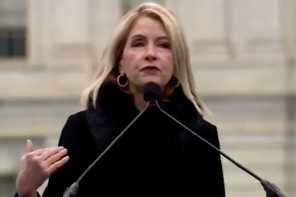10 Questions for Edward J. Blum on W. E. B. Du Bois, American Prophet (University of Pennsylvania Press, 2008)
What inspired you to write the book? What sparked your interest?
Personally, as a young and troubled boy, white Christianity promised me so much. It promised a loving father, a caring brother, and a social community. Little did I know that within the churches I attended, I absorbed an individualistic faith that privileged men and white supremacy. Whether it was only hearing men’s voices as authoritative or only seeing white images of the sacred, I learned (subconsciously and consciously) to revere whiteness and maleness. My higher education and professional work has been a process of unlearning those lessons and encouraging others to do the same. My unlearning began at the University of Michigan where the powerful presences of feminist scholars Susan Juster, Carroll Smith-Rosenberg, Maria Montoya, and Carol Karlsen shook my misogynistic subconscious. Then in graduate school it was the voices of Frederick Douglass, Ida B. Wells, and eventually W. E. B. Du Bois that opened my ears to the subtle racism of my religious past. This is why I turned to Du Bois, the leading African American intellectual and civil rights activist of the twentieth century. Here was a man who defied the notion that God or Jesus was white; here was a man who prized the “souls of black folk” and what they had to teach the world; here was a man who taught to revere dark mothers and sisters; here was a man who challenged materialism, white supremacy, imperialism, and racial violence in explicitly religious terms. His voice became a prophetic call that rang in my heard. His spiritual wisdom stood in opposition to the narcissistic, greedy, and exploitative world of my youth. I decided to write a religious life and times of Du Bois as a way for me to unlearn the culture of white religious supremacy, to provide the spiritual sustenance that was kept from me during my white, middle-class upbringing. I hoped that others would be able to hear his prophetic calls as well.
Professionally, I felt drawn to write about religion in Du Bois’ because it filled two important historical gaps. First, he was basically ignored by American religious historians who tended to write more about Jonathan Edwards, Charles Finney, Billy Graham, or Martin Luther King Jr. I wondered about the religious insights of a man who refused to become a minister. I found that Du Bois’s life and insights probably tell us more about the power and place of religion in American society than any of these others. Second, American historians have written extensively about Du Bois but have basically ignored his interest in religion. I felt shocked to read book after book about The Souls of Black Folk that focused on the word “folk” in the title but not on “souls.” This struck me as a blind spot in the profession. And lastly, in 2002 I was a finalist for a position at the Harvard Divinity School and when crafting my job talk thought “what better than an essay on Du Bois and religion.” He went to Harvard and I would be speaking before theologians and those interested in religious studies. I didn’t get the job, but that twenty-page job talk became this book.
What’s the most important take-home message for readers?
W. E. B. Du Bois’ life and insights teach that religion has been (and continues to be) crucial in racial, economic, and gender matters. Whether the construction of whiteness or the social outcomes of segregation, notions of the sacred and the profane, of the eternal and abiding, of the holy and unholy are crucial to understanding American history. As a sociologist, historian, editor, poet, novelist, and activist, Du Bois always spoke to the religious histories and conditions of his topic at hand. So any reader who wants to understand AmeriAmerican history must understand the power and presence of religion. And any reader who wants to be genuinely religious in an American context must take note of the past and present racial, gender, and class surroundings that create distance and breed alienation.
Anything you had to leave out?
There were so many other topics I wanted to include. I wanted to write more about his burial, about why there was a cross above his casket. I wanted to write more about his relationships with African American ministers, whose letters he published regularly in The Crisis and with whom he corresponded. I wanted to write more about his family morality and his deep spiritual love for his children. Finally, I wish that I could have written about Du Bois’ heirs in the academy, especially Cornel West and James Cone. I see West and Cone as carrying forward the tradition of Du Bois’ religious, racial, economic, and political insights. I was so happy to receive Professor West’s public blessing and Professor Cone’s private blessing for the book.
What are some of the biggest misconceptions about your topic?
The biggest misconception, and one that has kept hidden from view Du Bois’ profound religious contributions, has been that Du Bois was simply an atheist or agnostic who cared little for religion. This is the dominant argument that stretches from the late 1950s to the most recent Pulitzer-Prize winning works of David Levering Lewis. To be blunt, Lewis was wrong. Du Bois wrote prayers for his students; he penned dozens of short stories imagining Jesus in American society; he crafted poems that were litanies; he attended church throughout most of his life; he created his own “Credo” that he used throughout his life as an emblem of self-identification; he gravitated toward Communism, but did so by claiming that Jesus was the first Communist; and by the end of his days, he wrote in his final autobiography that he loved living “spiritually” as much as physically. There is an avalanche of evidence that shows that Du Bois thought deeply about religion and religious issues, and to disregard that is to do him and our society a disservice.
Did you have a specific audience in mind when writing?
I was writing for several audiences; first and foremost, I wrote for myself. I felt changed by Du Bois’ insights and I wanted to work through his influence to reflect on the deep transformation he wrought in my life. Next, I wrote for the hardworking group of American historians out there who teach slavery, race, segregation, the Civil Rights Movement, and W. E. B. Du Bois just about every semester. I wanted them to see that religious ideas, cultures, and structures were central to American society and to his life and times. If you teach The Souls of Black Folk, for instance, then you should probably talk about the meaning and importance of the word “souls” in the early twentieth century. Du Bois had a deep religious and historical meaning behind that rhetorical choice. I also wrote for American religious historians. I wanted religious historians to see that we have much to learn from individuals who are outside of the traditional religious history canon. If we look to Du Bois’ life, we find that black liberation theology existed long before the 1960s and was actually a creation of the Harlem Renaissance; if we look to Du Bois, we find that sociologists were looking at the ramifications of church segregation long before the 1950s and 1960s; if we look to Du Bois, we find that there have been ways to link leftist politics with American religious traditions. He helps us to understand the anger, rage, and prophetic brilliance within African American religious traditions. If we read more from Du Bois, then the sermons of Rev. Jeremiah Wright make much more sense. Finally, I wrote for communities of faith. Du Bois is a figure whose insights can help guide, direct, and enhance belief and spiritual community.
Are you hoping to just inform readers? give them pleasure? piss themoff?
When I write, I feel a deep sense of pleasure and sorrow. I hope my readers feel that as well. Du Bois’ religious life is a hero-narrative and a tragedy. His stories of black Madonnas wailing for their lynched sons should move any reader; his indefatigable persistence in attacking the many heads of white supremacy should inspire any reader; and the disregard of his religious insights by so many previous scholars should sadden any reader. I want readers to be terrified by the world they behold in my book—a world where on average an African American man was lynched every three days for a period of forty years (sometimes with prayers and sermons before the mob murders). I want readers to be amazed by how men like Du Bois (and many others) created spiritual meaning amid the racial violence by looking into the eyes of the dying and the dead and finding a new way to God.
What alternate title would you give the book?
I’m quite happy with the title, although I wished that somehow I could have worked in “The Religious Life and Times of W. E. B. Du Bois,” as a way to pay homage to Frederick Douglass. I am much more dissatisfied with the title of my first book, Reforging the White Republic: Race, Religion, and American Nationalism, 1865-1898. I had wanted to name it When God Wept: Race, Religion, and the Reforging of the White Republic, 1865-1898. The theme of a God who cried over racial discrimination, violence, and injustice ran throughout the book, and Du Bois concluded his magisterial Black Reconstruction with the vision of God weeping over the end of Reconstruction. Perhaps in a second edition I’ll have the opportunity to change the title and explain why in a new prologue.
How do you feel about the cover?
I love the cover. It is Du Bois at a young age, in his thirties, ready to take on the world. Too often we display images of activists or reformers from their later years. For instance, historians tend to use photographs of Frederick Douglass and Elizabeth Cady Stanton when they were quite old. But we have photographs of these individuals when they were young. I see a vibrancy in these youthful images as if we can see them longing to change the world.
Is there a book out there you wish you had written?
I am envious of so many books by my colleagues, for there is so much great work being done in American history. For years I’ve been jealous of Paul Johnson and Sean Wilentz’s The Kingdom of Matthias. It is so well written, so well-crafted, and works so well in the classroom. Kevin Boyle’s award-winning Arc of Justice is the most recent book I wish I had written. It is the story of Ossian Sweet, an African American doctor in Michigan, who had to defend his newly-purchased home from white invaders. It’s an incredible book, brilliant history written with the prose of an ace novelist. At heart, Arc of Justice tells a story of the personal outcomes of structural inequality, and it does so with page-turning vigor.
What’s your next book?
With Paul Harvey, an incredible historian of religion and the American South, we are writing a monograph on race and images of Jesus throughout American history. Both of us were disappointed with the lack of attention to racial categories and racial discrimination in the “Jesus in America” books by Stephen Prothero and Richard W. Fox. So we decided to investigate the making of a white American Jesus, the challengers to that Christ, and what it all has to say about race, religion, and power in American history. After that, I plan on running with the devil and demons in America’s cultural history.




